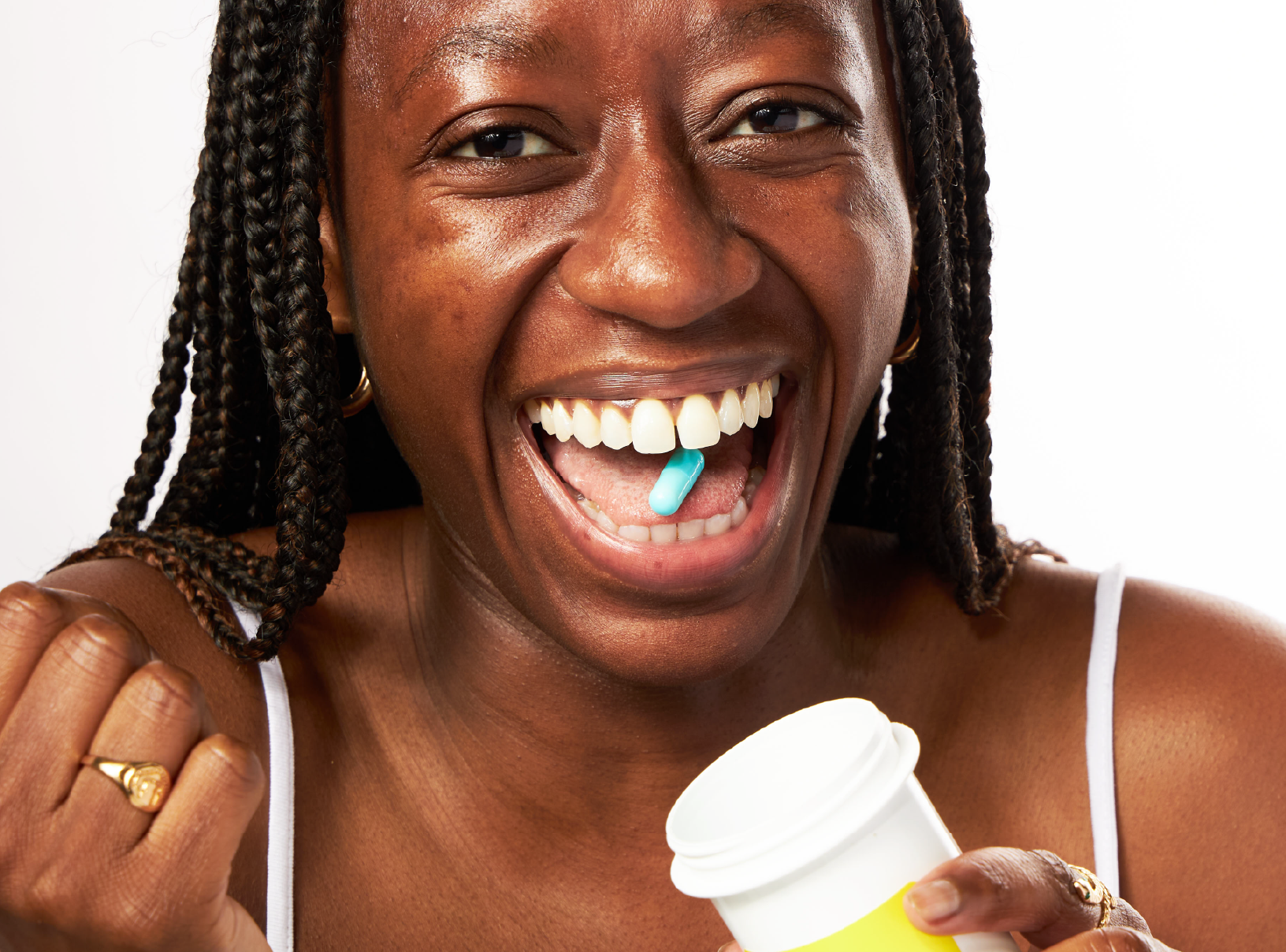Education
Best Oral Medication for Acne
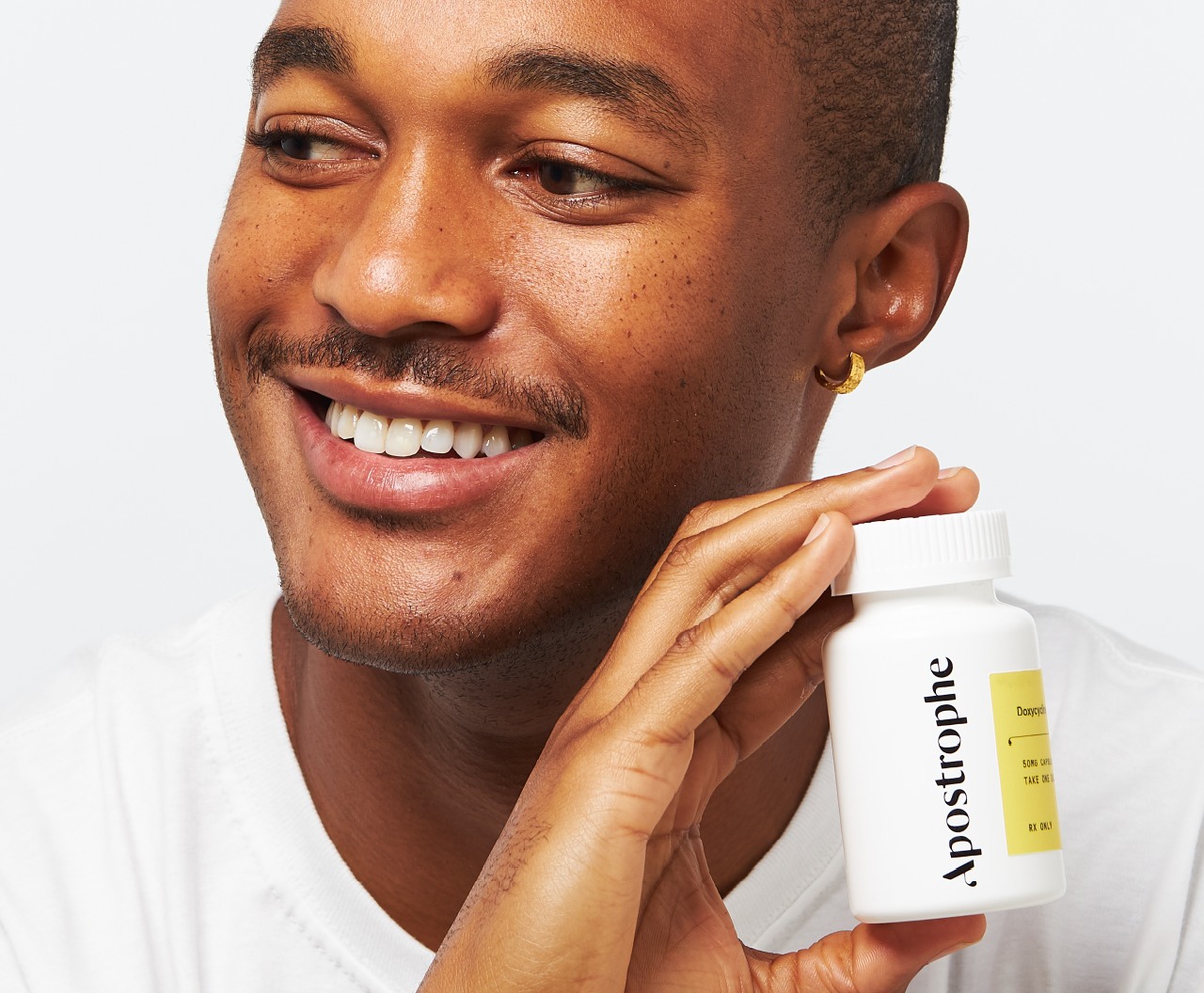
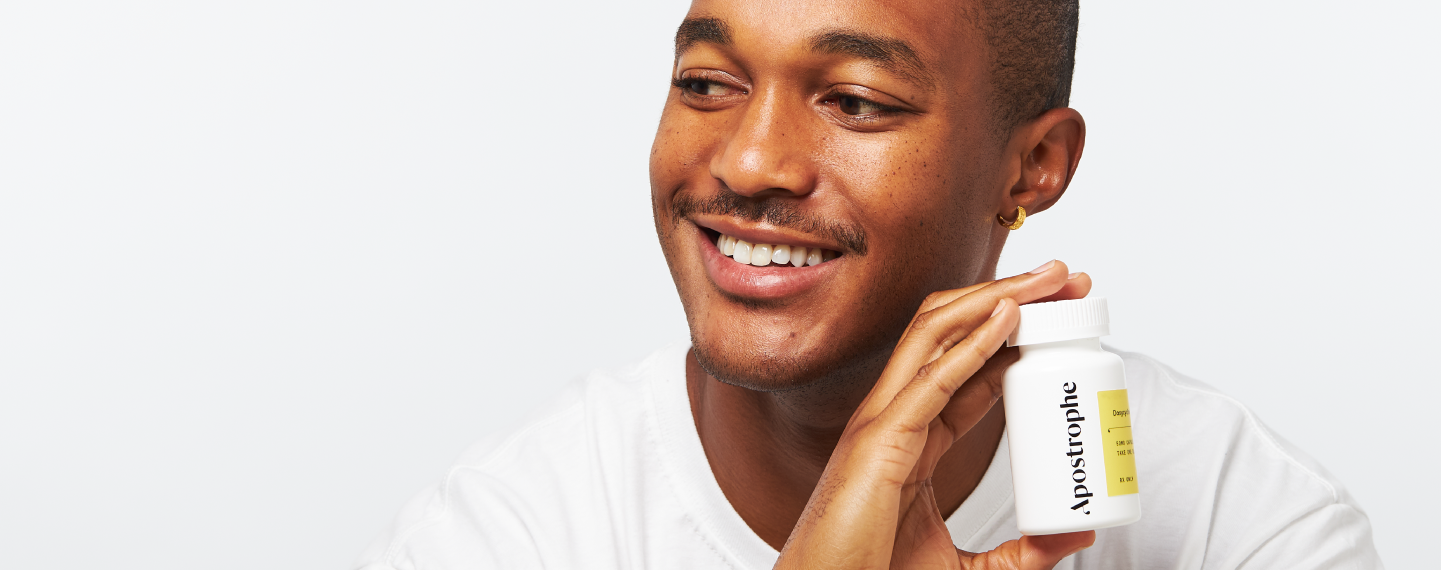
SHARE
Education
Best Oral Medication for Acne
Medically reviewed by Aimee Paik, MD
Written by Apostrophe Team
Last updated 4/1/2023
When you were a teenager, you greeted your acne with DIY-face masks, home remedies for acne and toothpaste-spot treatments, but you’ve grown up and so should your acne routine. When over-the-counter products just won’t cut it, your best bet is checking in with a dermatologist. Thanks to their expertise, you’ll understand what’s uniquely best for you to banish your breakouts for good.
If you have mild acne to severe acne or if your acne breakout is not well controlled by topical medication or treatments, then you might be a candidate for oral medicine for acne instead. Read on for a full guide to oral acne medications, as well as other topical treatment options, and decide for yourself the best oral medication for acne.
4 Oral Acne Medications
Think of your dermatologist as your personal guru for your skincare goals. They’re here to help you craft a plan of action to address your acne breakout and reveal clearer, more even skin. When you first speak with your online dermatologist, if you have mild to moderate acne, then they will probably start you off with topical prescription acne medication.
If your acne is moderate to severe or if the topical treatments don’t control it, then your dermatologist might instead prescribe oral acne medication. Oral acne medication is generally prescribed in combination with topical treatments for best results.
There are four primary oral acne prescriptions that your dermatologist might prescribe:
Antibiotics
Oral contraceptives
Spironolactone
Isotretinoin
Without further ado, let’s get to know these effective skincare treatments.
#1 Antibiotics
If you've taken antibiotics before, you're probably well versed in their infection-fighting capabilities, but did you know they can also help acne? Topical antibiotics can treat more mild acne, but oral antibiotics may be better for moderate to severe inflammatory acne.
Why? Well, they have very effective anti-inflammatory properties. They treat acne by reducing inflammation. But more importantly, they decrease inflammation itself so that those red painful pimples start fading away.
The most commonly prescribed acne medication or antibiotics are in the tetracycline class. This class includes:
Doxycycline
Minocycline
Some patients, such as pregnant women, can’t take tetracycline antibiotics. In this case, the dermatologist can prescribe other types of antibiotics such as cephalexin.
Generally, dermatologists prescribe systemic antibiotics in combination with topical treatments. Once your acne becomes more controlled, you will then transition off the antibiotics and continue using a topical acne treatment long term.
While most patients tolerate these antibiotics well, they can have side effects. Tetracycline antibiotics can cause gastrointestinal disturbances among other possible side effects. Certain side effects are also more associated with certain antibiotics. For example, doxycycline can cause photosensitivity while minocycline can cause dizziness and other central nervous system reactions. Oral antibiotics are always meant to be taken short-term and are a temporizing measure while other acne treatments take effect.
#2 Oral Contraceptives
For AFAB (assigned female at birth) individuals, oral contraceptives, otherwise known as birth control pills, can prevent pregnancy. But that’s not all they can do; a birth control pill containing estrogen can also treat acne.
They are usually considered a second-line treatment, so a dermatologist might try other options first. They can help all types of acne but are particularly effective for women suffering from hormonal acne because they target the underlying hormonal causes of that acne.
They work their magic by reducing the total amount of free testosterone in your body, which can then decrease acne. The Food and Drug Administration (FDA) has approved three types of oral contraceptives for the treatment of acne:
1. Ortho Tri-Cyclen (combination of norgestimate and ethinyl estradiol)
2. Estrostep (combination of norethindrone acetate and ethinyl estradiol)
3. Yaz (combination of drospirenone and ethinyl estradiol)
It’s important to recognize that some contraceptives containing different types of progesterone can have the opposite effect and actually increase acne. If you choose to take birth control pills, they can cause side effects such as:
Bloating
Nausea
Vomiting
Decreased Libido
There is also the possibility of more serious side effects such as stroke or heart problems. Unlike oral antibiotics, oral contraceptives are safe to take long term.
#3 Spironolactone
Another great option for hormonal acne or acne in general is oral spironolactone. Doctors can prescribe it by itself or in combination with oral contraceptives. Like oral contraceptives, it is not appropriate for those born male or those who are pregnant because of how it affects certain hormones.
Spironolactone is what is known as an antiandrogen medication. This means that it decreases the amount of androgens in your body. Androgens are male sex hormones that control sebum production. By blocking androgens, spironolactone reduces the size as well as the activity of your oil or sebaceous gland. In turn, you’re less likely to break out.
It can cause a range of side effects including:
Dizziness
Headache
Fatigue
Diuresis
Menstrual disruptions
Tender breasts
Enlarged breasts
Topical spironolactone is also only widely available through Apostrophe, and it is safe for people of all genders and associated with fewer side effects because it only affects the skin.
#4 Isotretinoin
You might have heard of a prescription topical retinoid such as adapalene or tretinoin. They are derivatives of Vitamin A. Isotretinoin is an oral form. Doctors prescribe isotretinoin for patients who have severe nodulocystic acne that has not improved from systemic antibiotics or hormonal medications.
Isotretinoin is incredibly effective because it combats all of the various causes of acne. It reduces inflammation, oil production, and the bacteria that cause acne. Doctors usually prescribe isotretinoin for 16 to 30 weeks. If acne returns or is not completely controlled, then they might prescribe a second course.
Isotretinoin can cause very serious birth defects, so it’s not safe for pregnant women, and doctors monitor patients closely if they prescribe it. Less serious and more common side effects are dryness across the entire facial region including the lips, nose, and mouth.
Other Acne Treatment Options
While highly effective, oral medications aren’t the only acne treatments to add to your arsenal. Your dermatologists typically prescribe a topical treatment to use with your oral medication for acne. Even if they do not, some of the oral treatments (such as antibiotics and isotretinoin) are temporary. Once you finish using them, your dermatologist will have you transition to a topical treatment.
There are effective topical treatments available both over-the-counter and by prescription. We’ll break down five topical prescriptions and five over-the-counter topical treatments to keep on your radar.
5 Topical Acne Prescriptions
First up, we have our five favorite prescription topical treatments:
1. Antibiotics – Antibiotics such as clindamycin and erythromycin are also available in topical form. They have antibacterial and anti-inflammatory properties that help treat acne. To avoid antibiotic resistance, they are usually prescribed in combination with benzoyl peroxide.
2. Azelaic Acid – Azelaic acid has antimicrobial and anti-inflammatory properties, and it helps unclog pores. How? It fights bacteria, stopping the inflammation process in your skin. It is an especially good option if you experience postinflammatory hyperpigmentation.
3. Retinoids – Like isotretinoin, retinoids are derivatives of Vitamin A but in topical form. They help unclog pores and reduce inflammation, pigmentation, and collagen loss. They can treat all kinds of acne but especially comedonal acne that is mild to moderate in severity.
4. Spironolactone – As we mentioned earlier, topical spironolactone works similarly to oral spironolactone but is safe for people of all genders. There also tends to be fewer systemic side effects because it isn’t affecting the entire body.
5. Combination medications – Combination medications have multiple active topical treatments such as adapalene (a retinoid) and benzoyl peroxide. They can be more effective, especially if someone suffers from multiple types of acne.
5 Over-the-Counter Acne Treatments
Now, let’s look at five over-the-counter topical acne treatments:
1. Alpha hydroxy acids – Alpha hydroxy acids are known colloquially in the skincare world as AHA’s. Glycolic acid, lactic acid, and citric acid all fall into this category. They work as a chemical exfoliant, which can help remove dead skin cells to reveal brighter, healthier skin.
2. Benzoyl Peroxide – Benzoyl peroxide is another natural acid. For over 60 years, it has been used to treat acne. It works by unclogging pores and killing the c.acne bacteria that can cause breakouts. It is often prescribed in combination with topical antibiotics because benzoyl peroxide reduces antibiotic resistance, and topical antibiotics increase benzoyl peroxide’s antibacterial abilities. It can also be very effective for mild acne.
3. Niacinamide – Niacinamide is a derivative of Vitamin B3. As a topical treatment, it can help acne by decreasing inflammation. Compared to other treatments, however, there has not been as much research into nicotinamide.
4. Salicylic Acid – Salicylic acid is a member of the beta-hydroxy acid family (BHA’s). You’ll find it in countless acne products from cleansers to lotions because of its exfoliating abilities. In addition to unclogging your pores, it can help with skin texture and reduce the appearance of large pores.
5. Sulfur – Sulfur is a natural element with antimicrobial properties. It’s thought to work partially by breaking down the outer layers of skin, like an exfoliant. Its recognizable odor discourages some patients, but it can be found in some over-the-counter products, especially in combination with other topicals such as benzoyl peroxide.
Access the Best Acne Medications with Apostrophe
So what is the best oral medication for acne? That’s a question for your dermatologist who can review your acne and medical history to determine the most effective custom acne treatment plan. In search of the perfect provider? The dermatologists at Apostrophe can craft a custom routine to address your skin concerns. Even better, we’ll deliver the products straight to your doorstep. Begin your skincare journey today with Apostrophe.
Sources:
National Center for Biotechnology Information. A review of diagnosis and treatment of acne in adult female patients. https://www.ncbi.nlm.nih.gov/pmc/articles/PMC5986265/
National Center for Biotechnology Information. Management of acne. https://www.ncbi.nlm.nih.gov/pmc/articles/PMC3080563/
National Center for Biotechnology Information. Oral Doxycycline in the Management of Acne Vulgaris: Current Perspectives on Clinical Use and Recent Findings with a New Double-scored Small Tablet Formulation. https://www.ncbi.nlm.nih.gov/pmc/articles/PMC4445892/
Oxford University Press. Minocycline as A Substitute for Doxycycline in Targeted Scenarios: A Systematic Review. https://academic.oup.com/ofid/article/2/4/ofv178/2460641
National Center for Biotechnology Information. A Review of hormone-based therapies to treat adult acne vulgaris in women. https://www.ncbi.nlm.nih.gov/pmc/articles/PMC5419026/
Nicola I. Espinosa and Philip R. Cohen. Acne Vulgaris: A Patient and Physician’s Experience. https://link.springer.com/article/10.1007/s13555-019-00335-0
Science Direct. Guidelines of care for the management of acne vulgaris. https://www.sciencedirect.com/science/article/pii/S0190962215026146
Wiley Online Library. Efficacy and safety of topical spironolactone 5% cream in the treatment of acne: A pilot study. https://onlinelibrary.wiley.com/doi/full/10.1002/hsr2.317
Journal of Drugs in Dermatology. Azelaic Acid: Evidence-based Update on Mechanism of Action and Clinical Application. https://jddonline.com/articles/dermatology/S1545961615P0964X
Apostrophe. Topical Spironolactone. https://www.apostrophe.com/medications/topical-spironolactone/
National Center for Biotechnology Information. Over-the-counter Acne Treatments. https://www.ncbi.nlm.nih.gov/pmc/articles/PMC3366450/
Shop this post
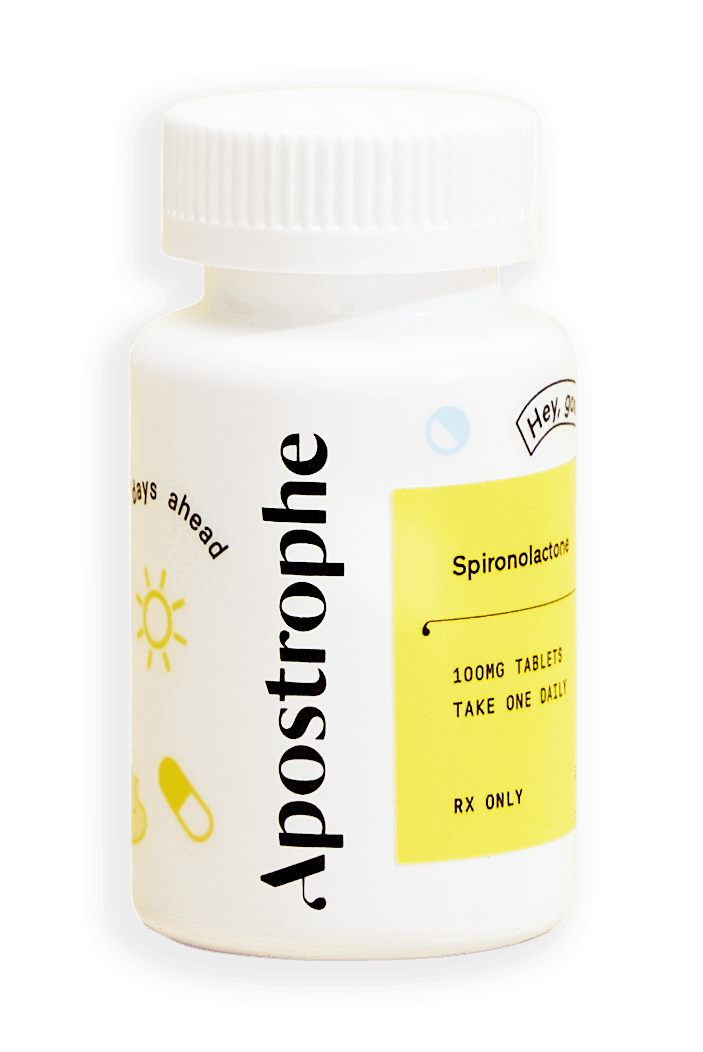
Oral doxycycline

Oral minocycline

Oral Spironolactone
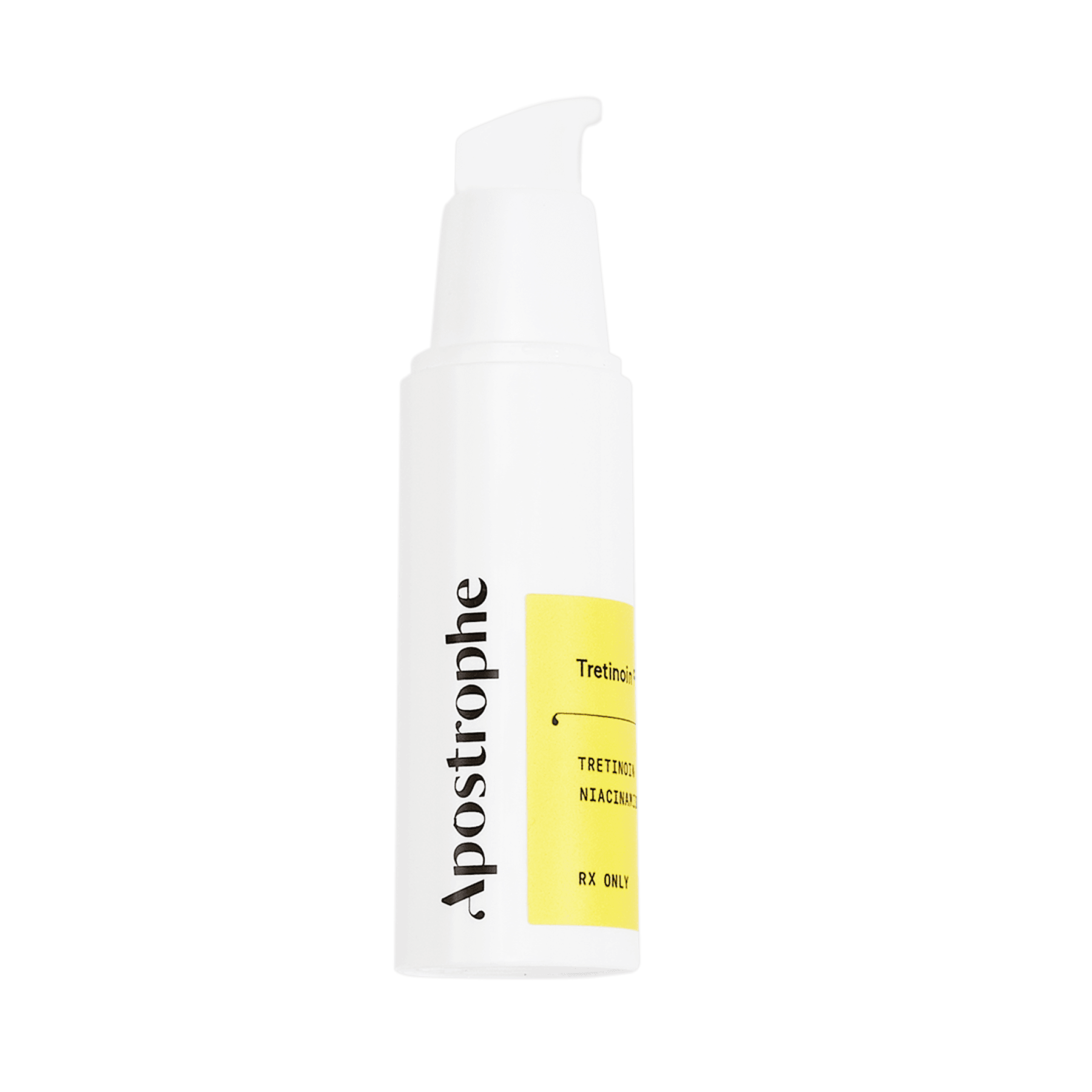
Finacea (azelaic acid)

Clindamycin

Tretinoin
Like what you just read? Sign up for our email list to get the scoop on skincare science delivered straight to your inbox.

Education
What is milia?
What is milia? Today, we’re jumping into one type of bump that you may have heard about most commonly in infants — milia.
Read More
Education
Best moisturizer for acne-prone skin
If you have combination acne-prone skin, figuring out which moisturizer is best for your skin might be tough. In this guide, we break down the best moisturizer for combination, acne-prone skin.
Read More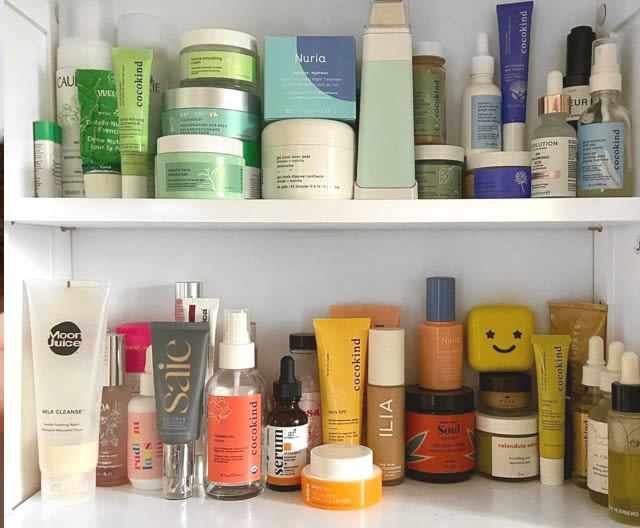
Education
How to build a face care routine
As you get into skincare, it might seem overwhelming, especially trying to figure out the order you're supposed to apply products in. Below, we detail how to build a face care routine for your skin!
Read More